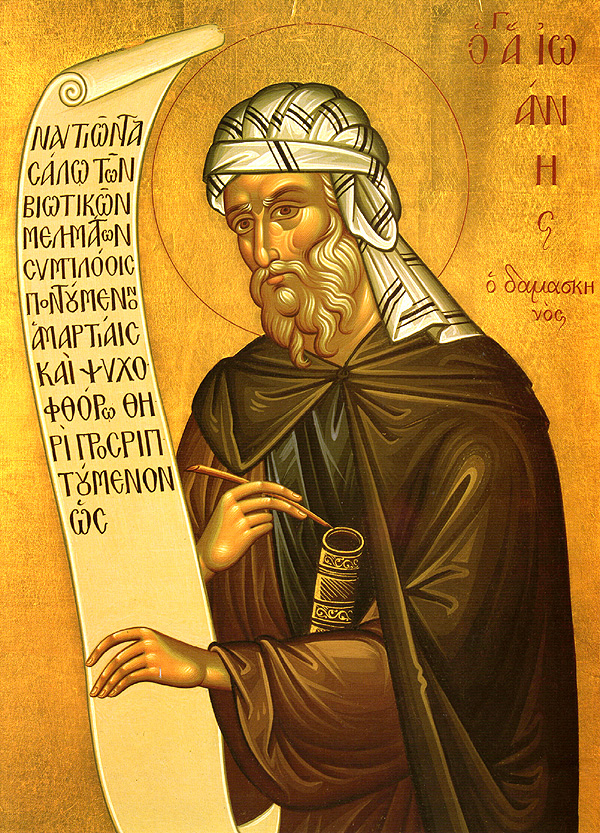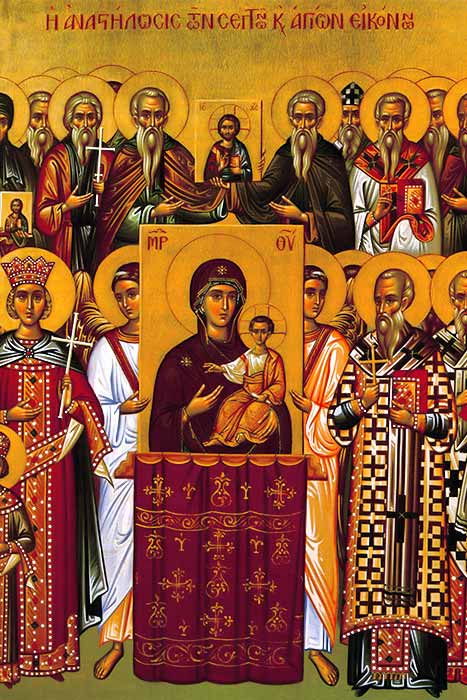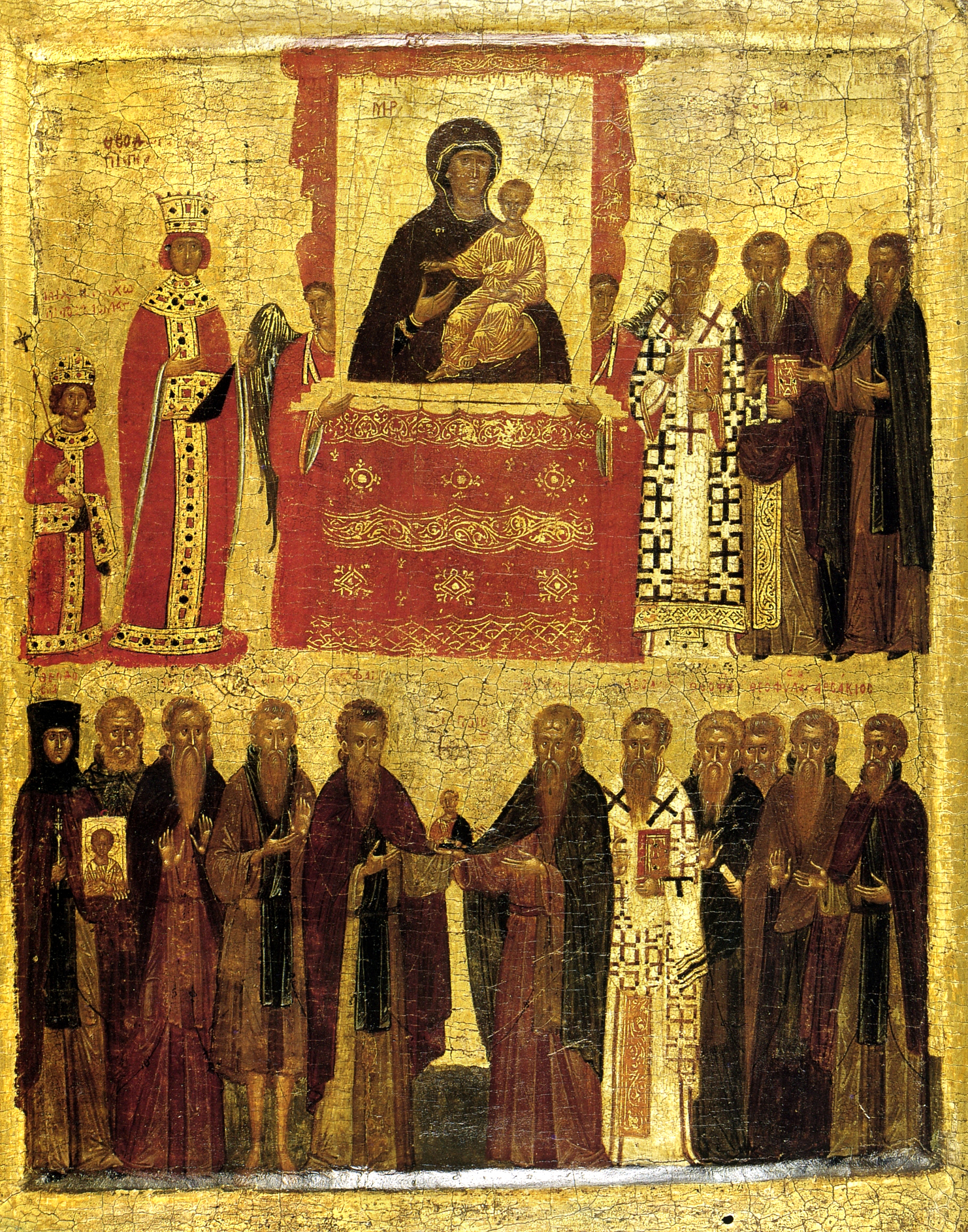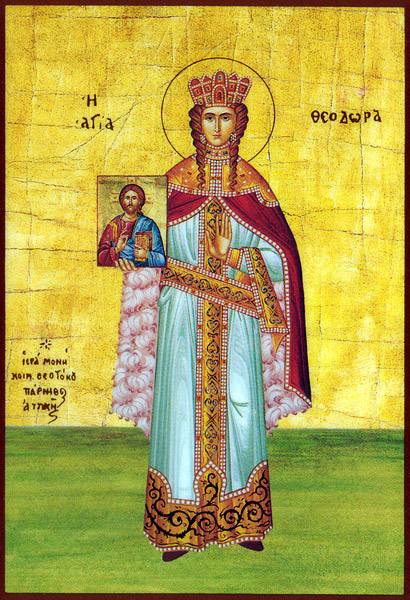- Dec 28, 2017
- 3,779
- 2,856
- Country
- United States
- Faith
- Christian
- Marital Status
- Private
I don't usually post about Islam, but this video connects to the history of Christianity and Christian Doctrines that directly differ from Islam.
Saint John of Damascus was one of the first Christians to write a defense of Christian Doctrine to the Muslims (675-749 A.D.)
John of Damascus - Wikipedia

These events happened before The 7th Ecumenical Council of 787 A.D. that dealt with the use of Holy Christian Icons :
CHURCH FATHERS: Second Council of Nicaea
• The Seventh Ecumenical Council. The Second Council of Nicaea
(787 A.D.)
• Extracts from the Acts. Session 1
• Anathema to the calumniators of the Christians, that is to the image breakers.
• Anathema to those who apply the words of Holy Scripture which were spoken against idols, to the venerable images.
• Anathema to those who do not salute the holy and venerable images.
• Anathema to those who say that Christians have recourse to the images as to gods.
• Anathema to those who call the sacred images idols.
• Anathema to those who knowingly communicate with those who revile and dishonour the venerable images.
• Anathema to those who say that another than Christ our Lord hath delivered us from idols.
• Anathema to those who spurn the teachings of the holy Fathers and the tradition of the Catholic Church, taking as a pretext and making their own the arguments of Arius, Nestorius, Eutyches, and Dioscorus, that unless we were evidently taught by the Old and New Testaments, we should not follow the teachings of the holy Fathers and of the holy Ecumenical Synods, and the tradition of the Catholic Church.
• Anathema to those who dare to say that the Catholic Church hath at any time sanctioned idols.
• Anathema to those who say that the making of images is a diabolical invention and not a tradition of our holy Fathers.


.
Saint John of Damascus was one of the first Christians to write a defense of Christian Doctrine to the Muslims (675-749 A.D.)
John of Damascus - Wikipedia
These events happened before The 7th Ecumenical Council of 787 A.D. that dealt with the use of Holy Christian Icons :
CHURCH FATHERS: Second Council of Nicaea
• The Seventh Ecumenical Council. The Second Council of Nicaea
(787 A.D.)
• Extracts from the Acts. Session 1
• Anathema to the calumniators of the Christians, that is to the image breakers.
• Anathema to those who apply the words of Holy Scripture which were spoken against idols, to the venerable images.
• Anathema to those who do not salute the holy and venerable images.
• Anathema to those who say that Christians have recourse to the images as to gods.
• Anathema to those who call the sacred images idols.
• Anathema to those who knowingly communicate with those who revile and dishonour the venerable images.
• Anathema to those who say that another than Christ our Lord hath delivered us from idols.
• Anathema to those who spurn the teachings of the holy Fathers and the tradition of the Catholic Church, taking as a pretext and making their own the arguments of Arius, Nestorius, Eutyches, and Dioscorus, that unless we were evidently taught by the Old and New Testaments, we should not follow the teachings of the holy Fathers and of the holy Ecumenical Synods, and the tradition of the Catholic Church.
• Anathema to those who dare to say that the Catholic Church hath at any time sanctioned idols.
• Anathema to those who say that the making of images is a diabolical invention and not a tradition of our holy Fathers.


.
Last edited:

